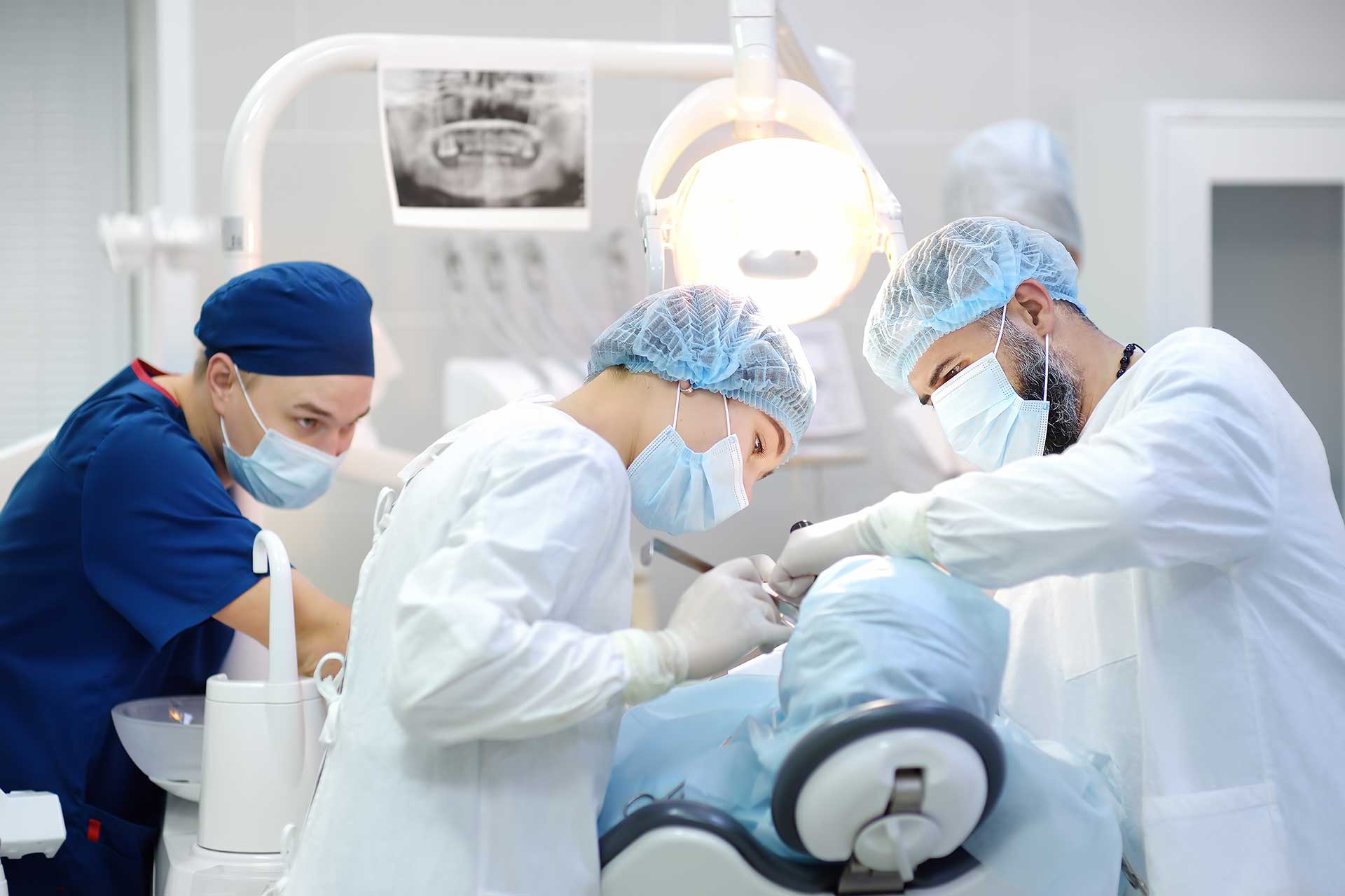Gingivectomy surgery is a surgical procedure performed to correct the gum line or to provide better access to the tooth roots. Proper care and follow-up are crucial after this surgery. This is because the effectiveness of the treatment and the smoothness of the healing process depend on the recovery period.
What is Gingivectomy Surgery?
Gingivectomy surgery is the surgical removal of gum tissue. This procedure is commonly used in the treatment of gum diseases. Gingivectomy can be performed in cases where there is excessive gum tissue, advanced gum disease, or for aesthetic reasons.
How is it Done?
During the surgery, gum tissue is thinned or removed. This procedure can be done to correct the gum line, clean gum pockets, and make teeth more visible. During the surgery for treating gum diseases, plaque and tartar accumulated under the gum tissue are also removed.
The gum surgery is performed under local anesthesia and is generally associated with minimal pain. The healing process may vary depending on the individual's health status, the complexity of the surgery, and the procedures performed during the operation. During the recovery period, it is important to keep the gums clean and avoid certain foods and beverages. Follow-up appointments after the surgery are usually scheduled to monitor the healing process.
Post-Gingivectomy Surgery Care
What you should do after gingivectomy surgery generally includes the following:
First 24 Hours
- Rest: Try to rest as much as possible in the first 24 hours after surgery. Focus on the healing process by limiting your activities.
- Cold Packs: Mild swelling and discomfort may occur in the first few hours. You can apply a cold pack to the surgical area to alleviate this. However, avoid placing the ice pack directly on the skin and take breaks every 20 minutes or so.
- Pain Medications: Use the pain relievers recommended by your doctor regularly. Discuss prescription or over-the-counter medications with your doctor beforehand.
Oral Hygiene
- Gentle Brushing: Brush your teeth gently and keep it away from the surgical area. You can use a soft-bristled toothbrush.
- Dental Floss: Use dental floss carefully and gently around the surgical area. However, avoid applying too much pressure to the surgical area.
- Antibacterial Mouthwash: Maintain your oral hygiene by using an antibacterial mouthwash recommended by your doctor. Prefer alcohol-free products.
Food and Beverage Choices
- Soft and Cool Foods: Soft, cool, and liquid foods are generally preferred in the first few days. Foods such as soup, mashed fruits, and yogurt can facilitate digestion.
- Avoid Hot and Spicy Foods: Avoid hot and spicy foods after surgery. These types of foods can cause pain and discomfort.
Other Recommendations
- Smoking and Alcohol: Avoid smoking and limit alcohol consumption after surgery. These substances can negatively affect the healing process.
- Doctor Check-Ups: Attend scheduled follow-up appointments after surgery. Following the doctor's recommendations for follow-up and treatment is important.
- Oral Care Products: Use oral care products recommended by your doctor. This can speed up your healing process and reduce the risk of infection.
Possible Complications
- Infection: To reduce the risk of infection in the surgical area, use the antibiotics recommended by your doctor regularly and pay attention to oral hygiene.
- Allergic Reactions: If you develop any allergic reactions to the oral care products or medications used, consult your doctor immediately.
- Excessive Bleeding: In case of excessive bleeding in the surgical area, consult your doctor immediately.
Careful care after gingivectomy surgery is important for a quick and smooth recovery process. Following your doctor's recommendations is also important to prevent possible complications and to have healthy gums. If you experience any problems or concerns after surgery, consult your doctor immediately.
